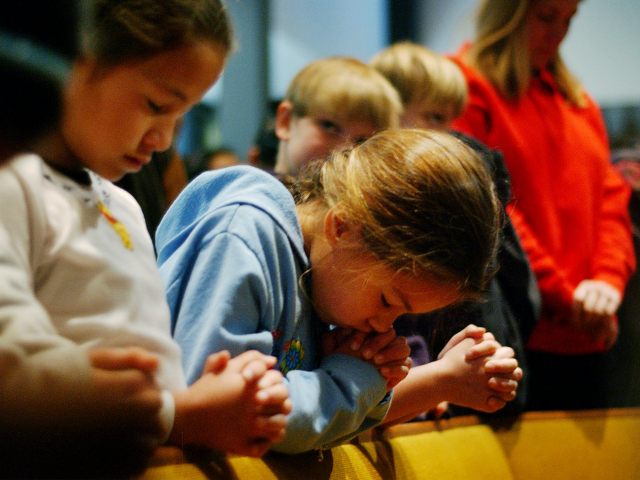The Biden administration argued Wednesday before the U.S. Supreme Court that it is constitutional for states to exclude Christian schools from tuition aid programs.
In Carson v. Makin, a lawsuit brought by Maine parents who attempted to send their children to Christian schools using state aid but were prohibited from obtaining assistance, the parents claimed the state statute violated the Free Exercise and Establishment Clauses of the First Amendment and the Equal Protection Clause of the Fourteenth Amendment.
The Maine Department of Education, however, argued the state should not be required to “subsidize” religious instruction.
“The judgment of the Court of Appeals upholding Maine’s sectarian school exclusion should be affirmed,” U.S. Deputy Solicitor General Malcolm Stewart argued for the Biden administration in support of the state of Maine before the Court.
He summarized his argument:
That is so for three basic reasons. First, the government has far greater latitude when it simply declines to fund particular speech or religious exercise than when it imposes affirmative barriers to that speech or exercise. The second, Maine has a legitimate anti-establishment interest in declining to fund the religious exercise in which Temple Academy and BCS [Bangor Christian Schools] engage, even if a federal Establishment Clause would permit the state to fund those schools. Third, the religious instruction these schools provide is by the school’s own account, not severable from the secular components of their instructional programs.
In the U.S. government’s amicus brief in support of Maine’s position, the Biden administration argued Maine:
…undisputedly has a valid—indeed, compelling—interest in providing nonsectarian education when SAUs [School Administrative Units] maintain their own secondary schools (where the Constitution forbids sectarian instruction) or contract for secondary-school privileges nearby.
The brief continued to say Maine’s statute “simply ensures that the basic contours of a ‘free public education’ remain the same under the tuition-assistance program.”
The Biden administration also argued the Maine statute “does not violate the Establishment Clause”:
By declining to fund religious instruction, Maine has not “disapprov[ed] of a particular religion or of religion in general” … Nor does the inquiry into whether a school is covered by Section 2951(2) foster excessive government entanglement with religion. Schools generally self-identify as “sectarian” or “nonsectarian” within the meaning of the statute, and any further inquiry is based on objective factors about the school’s mission and curriculum.
Similarly, the Biden administration asserted the Maine statute “does not violate the Equal Protection Clause”:
Section 2951(2) furthers legitimate anti-establishment interests, and it does not infringe on the right of parents to direct the education of their children. As this Court has repeatedly held, “a legislature’s decision not to subsidize the exercise of a fundamental right does not infringe the right, and thus is not subject to strict scrutiny.”
Summarizing its argument in support of Maine, the federal government wrote the statute “does not restrict funding based on a school’s religious identity, but simply declines to subsidize a form of religious exercise—the inculcation of specific religious tenets in secondary-school students.”
“[T]he State’s decision not to subsidize that category of religious instruction and inculcation reflects a legitimate interest in remaining neutral toward such an ‘essentially religious endeavor,’ not any ‘hostility toward religion,’” the brief stated.
During oral arguments, however, Justice Neil Gorsuch observed to Stewart the assertion that parents who choose to send their children to a religious school can simply provide the same instruction to them at a Sunday school or another faith-based evening program suggests “favoritism”:
[T]o suggest that you don’t have to choose between participation in the program in your faith, because you can send your children to Sunday school, or to a Bible study program at night. seems to suggest favoritism toward religions … for whom that is an adequate substitute, and discriminate against religions for whom that is not an adequate substitute.
Stewart responded:
I think the state is behaving neutrally in the sense that it says we will fund secular education, we will not fund religious instruction and inculcation, and it may be that to members of some religions that will be a greater practical burden than to others.
“So, to the Orthodox Jewish family, it is a burden, and to the Protestant family it may not be … that’s the practical reality of the program,” Gorsuch persisted.
In an exchange with Stewart, Justice Brett Kavanaugh also noted:
At its core, Mr. Stewart, you’re suggesting that with, say, two neighbors in Maine, in a neighborhood and … there’s not a public school available. And the first neighbor says we’re going to send our … children to secular private school. They get the benefit. The next-door neighbor says, well, we want to send our children to a religious, private school, and they’re not going to get the benefit. And I don’t see how your suggestion that the subsidy changes the analysis.
“That’s just discrimination on the basis of religion right there, at the neighborhood level,” Kavanaugh said.
The case is Carson v. Makin, No. 20-1088 in the Supreme Court of the United States.

COMMENTS
Please let us know if you're having issues with commenting.